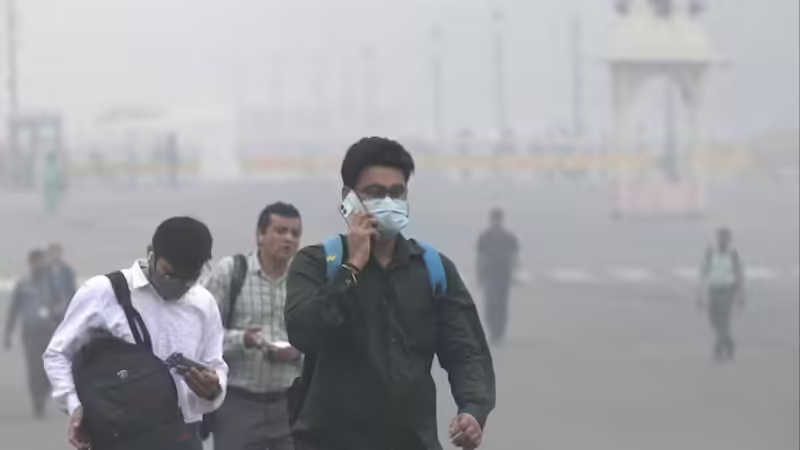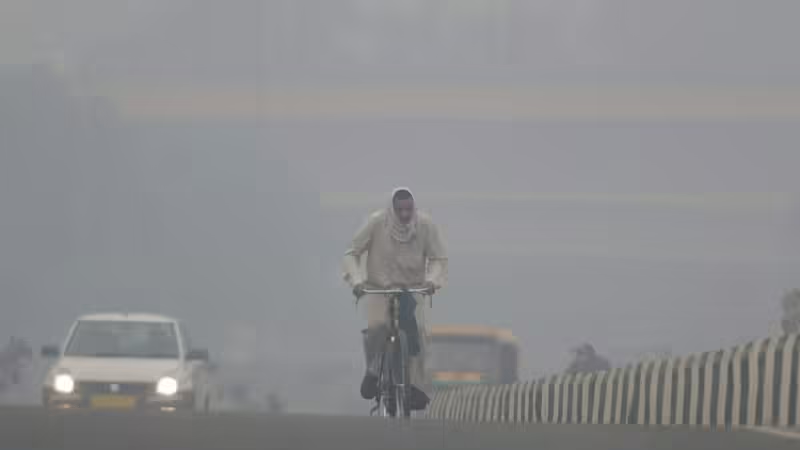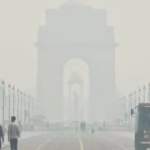How to Protect Your Health in Delhi’s Polluted Air

source : Google
Delhi, like many large cities, faces significant air pollution issues, particularly during the colder months when air quality worsens. With rising concerns over the health impacts of pollution, it’s crucial to take proactive steps to protect your health. Here are some effective tips to help you stay healthy in Delhi’s polluted air:
1. Monitor Air Quality
Keep an eye on the air quality index (AQI) in real-time. Apps and websites provide daily air quality readings, which help you plan outdoor activities. When the AQI reaches “very poor” levels, it’s best to limit outdoor exposure.
2. Limit Outdoor Activities
If possible, try to stay indoors during peak pollution hours, which are typically in the morning and evening. Outdoor exercise should be avoided when air quality is poor. Opt for indoor workouts like yoga or stretching exercises.
3. Use Air Purifiers Indoors
Invest in air purifiers for your home and workplace to improve indoor air quality. Choose purifiers with HEPA filters to trap harmful particles like PM2.5, which are a major concern in Delhi’s air.
4. Wear a N95 Mask
When stepping out during high pollution periods, wear a certified N95 mask. These masks filter out fine particles from the air, offering protection against pollutants. Avoid cloth masks as they are less effective in filtering harmful particles.
5. Stay Hydrated
Drinking plenty of water helps flush toxins from your body and keeps your respiratory system functioning well. Hydration is key in supporting your immune system to deal with air pollutants.
6. Eat Foods Rich in Antioxidants
Foods like berries, citrus fruits, green leafy vegetables, and nuts help boost your immune system and combat oxidative stress caused by pollutants. They can help neutralize the damage caused by free radicals in polluted air.
7. Keep Windows Closed
On days when pollution levels are high, keep windows and doors shut to prevent outdoor air from entering your home. Use air conditioning with a filter to help maintain indoor air quality.
8. Ventilate Your Home Properly
While keeping windows closed is important during high pollution, it’s essential to ventilate your home at times when the air quality improves (usually during rain or at night). This helps prevent the buildup of indoor pollutants.
9. Consult a Doctor
If you have pre-existing respiratory conditions like asthma, bronchitis, or other pulmonary diseases, consult a healthcare professional for advice on managing symptoms during high pollution. Keep medications on hand and avoid unnecessary exposure to polluted air.
10. Exercise Your Lungs
Breathing exercises like pranayama or deep breathing can help strengthen your lungs and improve lung capacity. This is particularly important for people living in highly polluted cities like Delhi.
11. Opt for Electric Vehicles
If you’re concerned about pollution, consider switching to electric vehicles or using public transportation, which can reduce the emissions contributing to air quality issues.
By taking these measures, you can protect yourself and your family from the harmful effects of air pollution in Delhi. Staying informed, being proactive, and making small lifestyle adjustments can help mitigate the risks associated with the city’s poor air quality.











